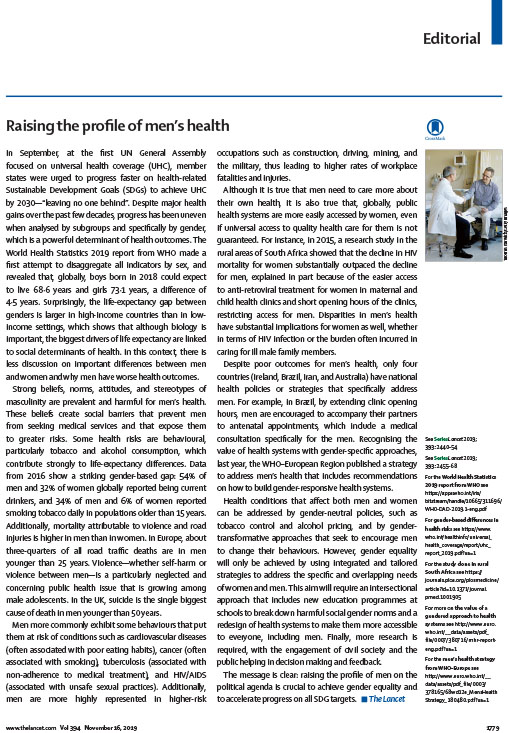In September, at the first UN General Assembly focused on universal health coverage (UHC), member states were urged to progress faster on health-related Sustainable Development Goals (SDGs) to achieve UHC by 2030—“leaving no one behind”. Despite major health gains over the past few decades, progress has been uneven when analysed by subgroups and specifically by gender, which is a powerful determinant of health outcomes. The World Health Statistics 2019 report from WHO made a first attempt to disaggregate all indicators by sex, and revealed that, globally, boys born in 2018 could expect to live 68·6 years and girls 73·1 years, a difference of 4·5 years. Surprisingly, the life-expectancy gap between genders is larger in high-income countries than in low income settings, which shows that although biology is important, the biggest drivers of life expectancy are linked to social determinants of health. In this context, there is less discussion on important differences between men and women and why men have worse health outcomes.
